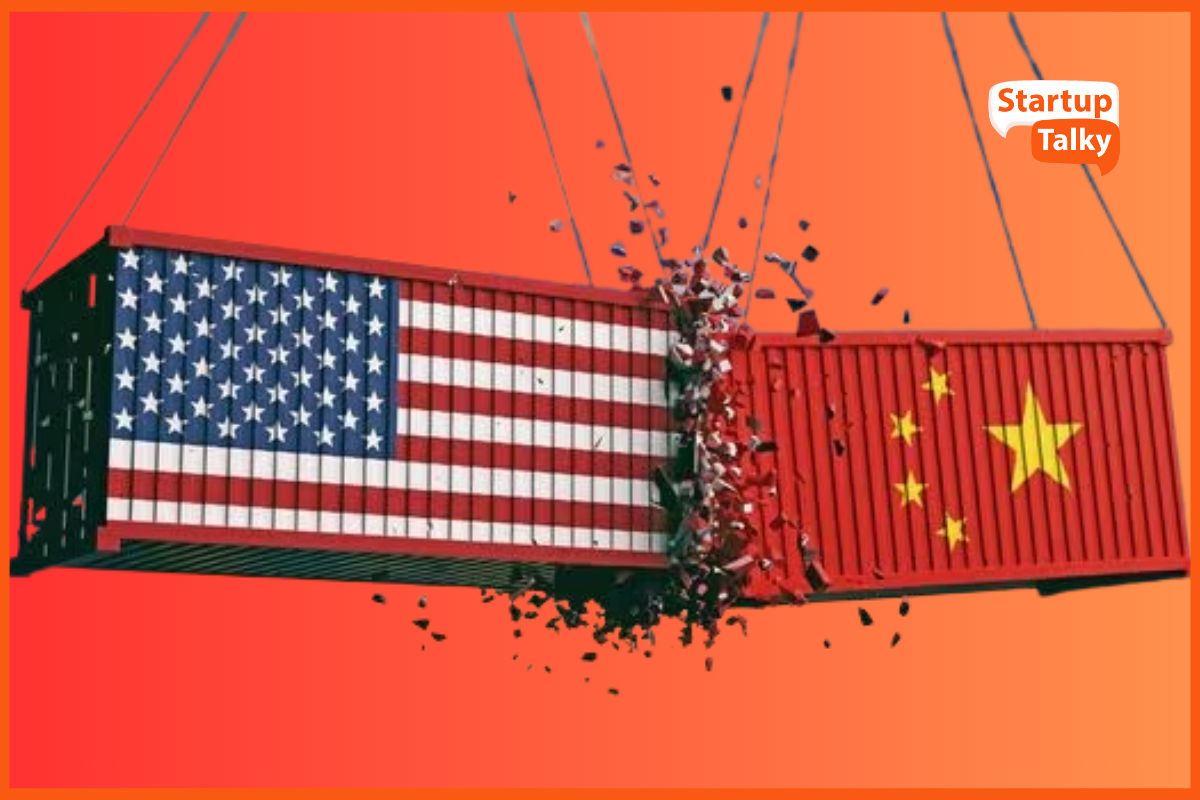China Hits Back at U.S. with 34% Tariff, Escalating Trade War
Retaliating against President Trump's newest tariff increases, Beijing shows that it is willing to take a more aggressive approach in dealing with the United States on trade.

President Donald Trump's latest trade initiation with China has been met with a powerful counter. China has declared a 34% tariff on all imports from the United States. This decision came just two days after Trump imposed an equal tariff on goods coming from China. It is worth noting that the Chinese response had been restrained up until now, with the most recent bilateral trade developments prompting a much-needed dialogue and serving as counterpoint to lieu d' arrangements in the WTO.
The U.S. Treasury's new investment restrictions on Chinese technology and semiconductor sectors were condemned by China's Ministry of Finance. It called the new measures a clear breach of international trade rules. The ministry also happens to run the company that is tasked with handling the new U.S. restrictions and with collecting any necessary duties on exports from the targeted sectors. The Chinese ministry warned, in a statement issued on the same day as the U.S. announcement, that the actions not only impact China's economic interests but also global supply chain stability.
Retaliation Hits U.S. Agriculture and Industry
In conjunction with the tariff, China rolled out several targeted measures to put pressure on crucial parts of the U.S. economy. It immediately stopped importing chicken products from three American companies and suspended imports of sorghum from C&D (USA) Inc., citing health and safety issues. These decisions appear aimed at a very visible and crucial part of the U.S. economy, agriculture. That's significant because agriculture was a big part of Trump's electoral support, and the base has been a big target for these trade actions.
Moreover, Beijing blacklisted 11 American companies, adding them to an "unreliable" list that prohibits them from trading with Chinese firms. Simultaneously, China placed 16 other US companies under a new export control regime. Then it opened an anti-dumping investigation into imports of US and Indian medical CT X-ray tubes : an investigation that, if it results in tariffs, could put the affected companies in a position of having to choose between their Chinese and their American customers. What do these moves mean? They signal that American corporate access to Chinese markets is under serious threat.
The Ministry of Commerce also put forth fresh export regulations on key rare earth elements, materials that are crucial to the semiconductor industry and other sectors. The controls, which took effect Friday, could significantly affect global supply chains.
Legal and Diplomatic Pressure Builds
Alongside trade limits, China has lodged an official complaint with the World Trade Organization regarding the newest U.S. tariffs. Authorities underscored that the country still advocates for multilateralism and urged the U.S. to drop its trade war approach. Some analysts suggest that Beijing's more assertive posture these days may be a way of making sure that Washington, in particular, doesn't forget about the need for real dialogue.
U.S. stock futures and European indices have already reacted by sliding on the news of Beijing's counter measures. The situation is escalating, and the way forward is anything but clear. But the tension and uncertainty pit two great economic forces against each other with the potential for collateral damage to the global economy.
Must have tools for startups - Recommended by StartupTalky
- Convert Visitors into Leads- SeizeLead
- Website Builder SquareSpace
- Run your business Smoothly Systeme.io
- Stock Images Shutterstock




